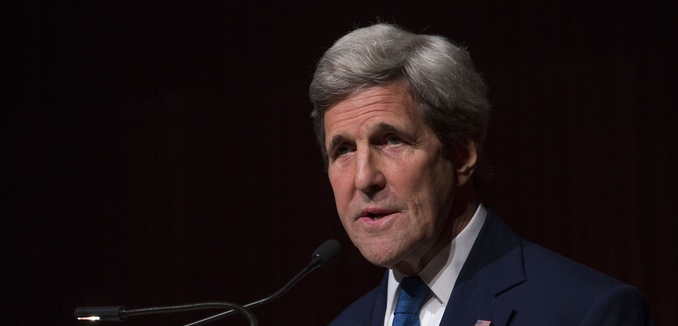While the White House is encouraging foreign banks to do business with Iran, the Islamic Republic has continued to engage in the same illicit behavior that initially prompted its sanctioning, President Barack Obama’s former undersecretary of the treasury for terrorism and financial intelligence wrote in a Wall Street Journal op-ed (Google link) Friday.
Stuart Levey, now the chief legal officer of HSBC Holdings, observed that private institutions have an obligation to mitigate financial crime risks and will therefore find it challenging to follow the Obama administration’s advice. He also noted the irony of Secretary of State John Kerry telling European banks that they shouldn’t fear doing business with Iran, when almost ten years earlier many of the same institutions were gathered by the Bush administration to discuss the risks of engaging with Iran.
Over the past decade, both the Bush and Obama administrations, as well as European Union nations and the United Nations, “imposed extensive sanctions targeting Iran’s illicit and deceptive conduct,” Levey continued. The U.S. Treasury Department also kept banks up to date about Iranian behavior, while the Financial Action Task Force (FATF), a watchdog focused on ensuring the integrity of the international financial system, warned banks of the financial risks involved in transacting with Iran. The end result, Levey wrote, was that “Iran became a financial pariah.”
No one has claimed that Iran has ceased to engage in much of the same conduct for which it was sanctioned, including actively supporting terrorism and building and testing ballistic missiles. But now Washington is pushing non-U.S. banks to do what it is still illegal for American banks to do.
This is a very odd position for the U.S. government to be taking.
Earlier this year, the FATF reiterated that Iran remained a money laundering concern and urged banks to treat it accordingly. The Treasury also determined that “the international financial system [is] increasingly vulnerable to the risk that otherwise responsible financial institutions will unwittingly participate in Iran’s illicit activities.”
However, Kerry has been pushing banks to accept the risks and liabilities of doing business with Iran “without a U.S. repudiation of its prior statements about the associated financial-crime risks,” Levey observed. Given the warning from Treasury, this would pose a significant risk to these financial institutions because regulators could still take actions against them.
And while the U.S., EU, and UN all lifted sanctions from hundreds of Iranian banks, there was no guarantee that the banks have ceased the illicit activities that invited the sanctions in the first place.
Levey concluded by saying that HSBC was doing all it could “to implement consistent and high standards across its global operations, designed to combat financial crime and prevent abuse by illicit actors.” That would mean that HSBC will take into account “financial-crime risks and the underlying conduct,” and that therefore “HSBC has no intention of doing any new business involving Iran.”
Valyollah Seif, the governor of Iran’s central bank, threatened last month that the nuclear deal would “break up” if the U.S. didn’t give Iran greater access to its financial system. Seif himself had acknowledged last year that it was Iran’s practices that prevented it from integrating into the international financial system.
Kerry’s effort to encourage European banks to boost their business ties with Iran comes amid concerns that the Obama administration will back down from its commitment prevent Iran from accessing the dollar for transactions. Mark Dubowitz, the executive director of the Foundation for Defense of Democracies, warned last month against allowing Iran that access recalling that “sanctions were being put in place because the Iranian financial sector represented a threat to the integrity of the global financial system.” He added that Iran remains “a severe illicit financial threat.”
[Photo: LBJ Library / Flickr ]




